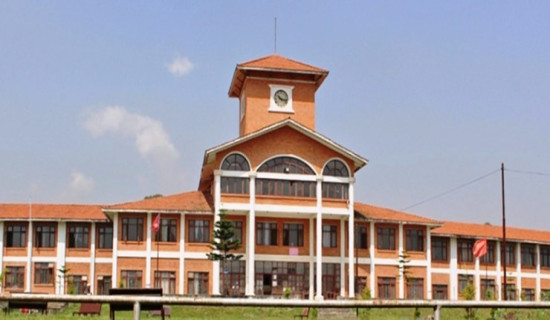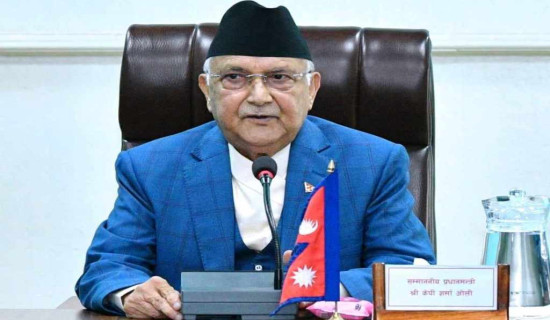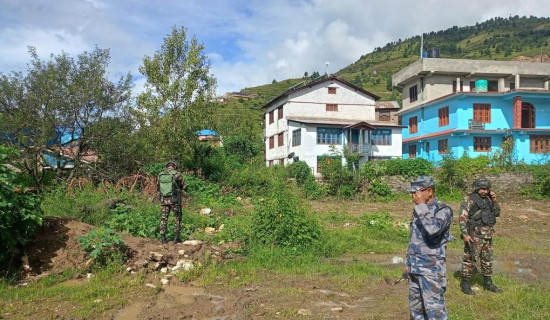- Tuesday, 9 September 2025
US Tariff Challenges
United States President Donald Trump's sweeping tariffs levied on the goods entering that country have sent shockwaves across the world's economy, crashing global share markets and sending some export-reliant economies into panic mode. There are also fears about a global recession. Should the proposed taxes be implemented, it will, economists argue, even sound the death knell for some impoverished African countries. While the nations with which the US has long been running huge trade deficits, like China, Vietnam, and even India, will face steeply hiked tariffs, a general 10 per cent on all imports, including from Nepal, will be imposed.
Nepal's exports to the USA have enjoyed duty-free access. But, as Nepal faces a new reality, there have been calls from major stakeholders for the Nepal government to mount a well-calculated response so that Nepali producers and exporters will be insulated from the fallout. About 70 countries have shown their willingness to talk with the US government to negotiate the tariff rates, with leaders of some countries even paying a visit to the White House to personally persuade President Trump not to go ahead with his plans, and also to express their readiness to accommodate his demands.
According to a news carried by this daily on Thursday, should the new tariff policies be fully implemented, Nepal's zero-duty products like carpets, dog/cat food, shawls, essential oils and antiques will be hit hard. Exporters of carpet, one of the top exports, are particularly worried. Garment Association of Nepal (GAN), Nepal-USA Chamber of Commerce and Industry (NUSACCI), and Nepal Carpet Manufacturers and Exporters' Association (NCMEA) have sought government interventions in moving forward with negotiations with the USA, Nepal's second-largest goods export market.
Some producers have even worried that the 10 per cent duty would be felt as 30 per cent, saying that Nepal's cost of production is significantly high, making Nepali products less competitive in the international markets. Some experts have called for reducing the cost of production and enhancing quality to cope with the new pressure. Dr. Yuba Raj Khatiwada, Economic Advisor to the Prime Minister, has articulated that Nepal needs to make a case for preferential treatment in bilateral trade relations as the country is graduating to a developing country from a least developed country.
Others have called this moment a blessing in disguise, which has presented new opportunities to open up the country to foreign direct investment in textiles and handicrafts. Goods from Nepal are still said to be significantly cheaper than those from its competitors like India, Sri Lanka, Pakistan, Vietnam and even China, among other countries. Other levers, they have explained, Nepal has at its disposal are a weak currency and cheap labour costs. Nepal should strategically utilise them to its advantage. A former president of the GAN has asked that the government remove existing hurdles to production and export, as well as ensure domestic production of raw materials and increase productivity, if the country is to cash in on this newfound opportunity.
Nepal's trade with the US was in deficit in four of the last five years, with the former recording a slight surplus only in the last year. This means that Nepal hasn't exploited the US market to its advantage. Also, given the fact that Nepal's economy is minuscule compared with that of the US, the latter should consider waiving the planned tariffs and support the former in making economic strides.





copy-(1)-square-thumb.jpg)
-original-thumb.jpg)










